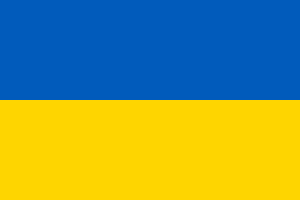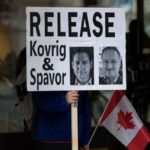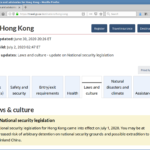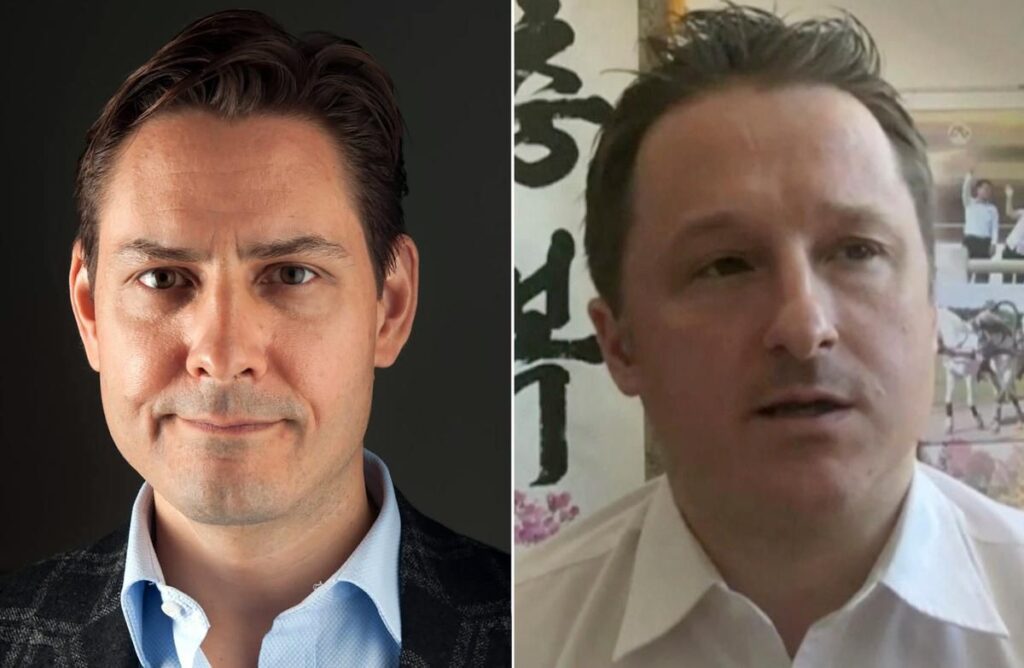
Flag of Ukraine.
It was a month ago today that Russia invaded Ukraine, the first (as I understand it) inter-state invasion in Europe since the end of the Second World War in 1945, 77 years ago … over three quarters of a century! I am speechless. Europe has been united in order to prevent such a catastrophe from ever breaking out again (“Never again!”), and one madman with a personal agenda based on a twisted understanding of history has changed that.
I really don’t have it in me to try and put together some coherent piece to add to the billions of litres of ink already spilled on this topic, much of it written by people far more erudite (and paid far more) than me, so I’m going to make a few little notes.
“Madman”
That term, “madman”, has been top of mind for me since I saw his speech denying the existence of Ukraine over a month ago. In news coverage I saw a comment by one American Republican senator that vladimir putin “didn’t seem right”, or words to that effect. I thought exactly the same, and several people have made similar comments since. On the other hand, I came across this piece by Joanna Williams in “Spiked”: “The war in Ukraine is not about Putin’s mental health“. To be honest it sounds like something written by a contrarian, but that seems to be Spiked’s raison d’être.
Volodymyr Zelenskyy
Unlike his Afghan counterpart on 15 August 2021, Zelenskyy stayed the course and stayed in his office in Kyiv. He turned down an American offer to evacuate him and his family with the statement, “I need ammunition, not a ride.” The guy is a fucking hero. As a politician and as a human he is probably loaded with flaws, as are all of us, but as the President of Ukraine and the leader of a country invaded by the biggest country in the world, he has and will continue to have my undying respect. I’ve often said that instead of wars, the leaders of countries should get in a ring with each other and fight until there is a TKO; despite his self-manufactured manly image, putin probably wouldn’t last thirty seconds again Zelenskyy.
Peace talks
These have been a joke since day one. I get it; whatever side you are on, you walk into “talks” asking for the world, and you eventually settle for less. But why are there even peace talks? Don’t you talk first in order to avoid a fight, and only then fight? I suppose the Ukrainians have been talking to the Russians since 2014, when the Russians invaded Crimea and, nudge nudge, wink wink, “didn’t” invade the Donbas, but clearly that talking has gone nowhere in eight years. What little it did result in, the Minsk agreements, weren’t worth the paper they were written on in putin’s mind, and he started his “special military operation” (“war”, or “invasion”, to most of us) against Ukraine anyway. Hindsight is great, but if you can’t sort out a problem in eight years, both sides are probably not trying hard enough.
Not even Sergey Lavrov, Russia’s foreign minister, can be taken seriously. His first condition for Ukraine is to surrender and give the Russians everything they want … which, by the way, they are failing to get by military means.
Refugees
When the war is over, the countries that have taken in refugees should sue Russia for their expenses. Why not? Actually, not that I’m starting to draw up a peace treaty, but the Treaty of Versailles in 1919 was too harsh on Germany (it’s generally accepted) and contributed to the start of World War II. I suppose this will all need to be considered in time.
Russia’s words
I understand that all sides in conflict lie, but the lengths to which Russia has taken this stretch credibility. Starting before the war they accused the West of being “alarmist” and “hysterical” in their warning about a war. I mean, it’s just a joke. Now they claim they’re not targeting civilians, as missile after missile blows up residential blocks of flats, schools and hospitals. And “de-nazification”?! Not even in 1940s Germany was everyone a Nazi! How do you “save” the Russian-speaking people in Ukraine by killing them?!
Western aid to Ukraine
I realise how high the stakes are, but the West has let down Ukraine. The analogy I’ve heard — and analogies do have their limits — is one of a big bully on a playground beating a little kid. The little kid calls out to other kids to ask for help, but they demur, claiming the bully has a knife. Of course, the “knife” in this case is far bigger — nuclear weapons — but we are so far down that path already. I don’t want to suggest that talking isn’t worth it, but the reason that putin has decided that the West is weak is precisely because we have not stood up to him. If we don’t stand up to him now, he will keep pushing. Why wouldn’t he? There are Russian speaking minorities in countries all around Russia’s western border — even more now that Russians are abandoning the country while they can — and those countries will likely suffer the same fate as the Donbas in Ukraine.
So what do we do? Do we implement the no-fly zone that Ukraine has asked for? NATO says they will not, but do they really think that they can stay out of this fight forever? If the Baltic states suffer in the same way the Donbas has, will NATO really turn a blind eye? They can’t. It will be blatantly obvious that Russia will have launched a proxy attack on one or more of those NATO countries, and NATO will be treaty-bound to step in. And then what? You guessed it, we’re a shaky trigger finger away from nukes. I hope you’re practising to kiss your arse goodbye.
Poland has offered their old MiG-29s to the Ukrainian Air Force. Predictably, Russia claims they will consider this a provocation on the part of NATO, completely ignoring the fact that they have used Belarusian territory to launch their invasion. If they can use Belarus, why can the Ukrainians not use Poland? Sadly, the U.S. [rejected] Poland’s offer of fighter jets for Ukraine, calling it “untenable”. It’s at this point that you look at NATO and wonder if the alliance has somehow managed to paint themselves into a corner. It brings to mind the not-so-old adage, “Too big to fail.” Well, maybe NATO is too big to be useful if their own founding documents tie their own hands behind their back. But what’s the solution, or a better situation? I don’t really know, but the status quo is not working. As Zelenskyy himself asks, “How many civilians have to be killed before NATO will take the situation seriously?” (to paraphrase). He’s not wrong to ask the question, and it points out what I asked above: “Does NATO really think that they can stay out of this fight forever?”
Plain speaking from two former Irish presidents
Both Mary McAleese and Mary Robinson, former Irish presidents, has some rather undiplomatic and non-neutral words for putin. (“Former presidents united in condemnation of Ukrainian invasion.“) McAleese:
She described the Russian President as “demagogic”, “moronic” and an “appalling anti-human man” who she hoped the Russian people would one day find it “within their power to neutralise”.
On whether the Russian people could rebel and prove their own President’s downfall, Ms McAleese said she thought this was “the best hope”.
“It wouldn’t be the first time the Russians have done this… they have the courage, now they have to find it” she said.
“I’ve never been a person who ever had contempt for another human being, I’ve never been contemptuous. But I certainly am now.”
— The Late Late Show (@RTELateLateShow) March 11, 2022Ms Robinson said: “There is no doubt that Putin is very well protected, until suddenly maybe he is not.”
Robinson puts it well: It may only be someone within his circle that will set putin straight, but according to other reports he has “coup proofed” himself over the last twenty years. This is to the disadvantage of Russia, and it may well result in the downfall of human civilisation. All because he doesn’t want to hear any truth spoken to him.
The BBC is geographically challenged
Several times (not just once) in the early days of the war … sorry, “special military operation” … the BBC stated that Poland was “directly east of Ukraine”. (See screenshot.) I have no words for that level of stupidity. Ironically, though, that’s where I go for most of my international news.






